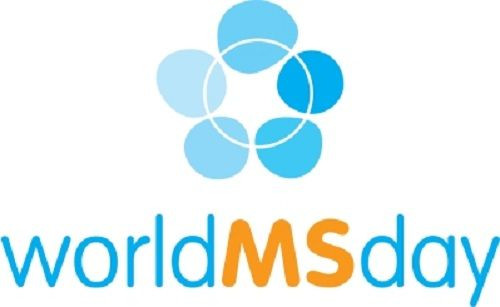World MS Day 2014: Raising Awareness That 'Access' Doesn't Come Easily

Today, May 28, is World MS Day. It’s the sixth annual MS Day hoping to raise awareness of the severely debilitating disease. The Multiple Sclerosis International Foundation (MSIF), along with as 68 other multiple sclerosis foundations around the world are holding events today with the same theme: access.
“When we talk about equality of access for people with MS, we mean access to social, political, and economic life,” MSIF’s website says. “Equality of access doesn’t just mean physical access to buildings, but access to the same tools, services, and facilities that people who do not have MS enjoy.”
Everyone wants access to something, whether it’s taking a salsa class or writing a novel, the Foundation says. As part of the raising awareness campaign, anyone who wishes for something can submit their one wish through the website, or through Twitter or Facebook with the hashtag “#OneDayMS.” “A One Day wish is your chance to share that wish with the world — a step toward overcoming whatever barriers might be in the way.”
MS affects almost 2.5 million people around the world and 400,000 people in the U.S. It’s one of the most common neurological diseases. It’s especially difficult to handle because of the age at which many people are diagnosed, which ranges from 25 to 31, therefore causing a lifetime of pain and difficulty. There is no cure for the disease, only ways to slow its progression or treat symptoms.
The disease is caused by a malfunctioning immune system, which attacks nerve cells at the optic nerve, in the brain, and along the spinal cord. It destroys the myelin sheaths that protect and cover the nerve cells, and renders them unable to communicate with each other. In turn, the nervous system becomes disabled, causing painful muscle spasms, numbness in the limbs, partial paralyzation, and tremor. The problems also extend to a dysfunctional bowel and bladder, eye problems, hearing loss, and slurred or stuttered speech.
There have been a number of advances in treating MS. Earlier this month, a study on paralyzed mice with a similar disease found that that stem cells could work effectively to cure the symptom. Even after their bodies rejected the human cells, they continued walking. Another study from December found that a vaccine used to prevent tuberculosis could help patients with early stages of MS.
Medical marijuana has also proven effective. Researchers from Tel Aviv University showed last month in the Journal of Neuroimmune Pharmacology, that the active ingredients in marijuana could prevent inflammation in the spinal cords and brains of mice with multiple sclerosis. In the documentary, The Union, we also meet one man, Greg Cooper, who suffers from MS and ataxia. The difference after he uses marijuana is evident.
MSIF notes that access to treatment is few and far between in the world as a whole. Treatments are expensive, medicines aren’t available in certain countries, jobs discriminate against people with MS, and information on MS doesn’t come easily in one’s own language. These are just a few of the access issues World MS Day hopes to reveal. To read more about World MS Day and problems with access, you can read MSIF’s blog here, and read about World MS Day here.



























